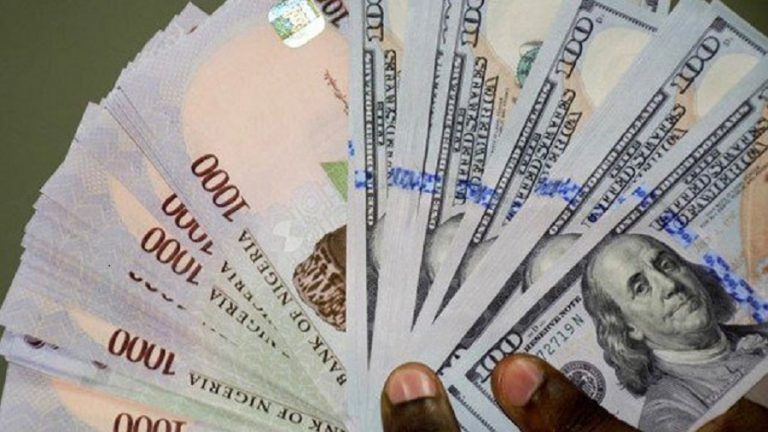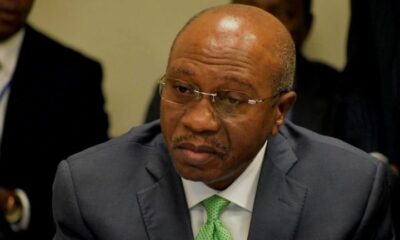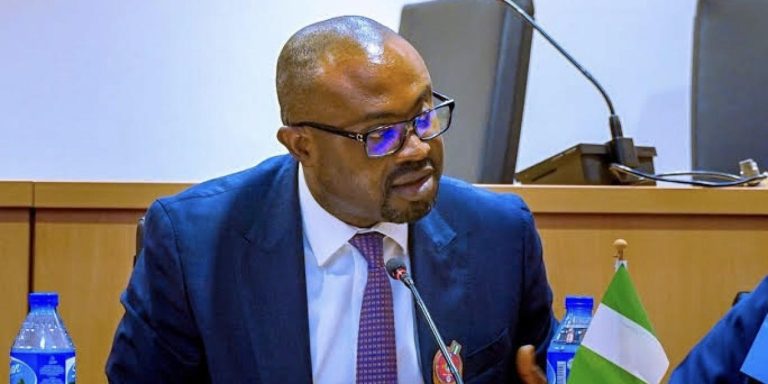The naira strengthened by N137.69 against the United States dollar over the course of a week, following the launch of the Central Bank of Nigeria’s new foreign exchange platform.
Data from the CBN’s website, released on Sunday, revealed that the closing exchange rate, which stood at N1672.69 per dollar on Friday, November 29, 2024, increased to N1,535/$ by the end of the week on Friday, December 6, 2024, reflecting an 8.24 percent gain.
This improvement came as some members of the “Organised Private Sector” urged the CBN to maintain the naira’s gains, emphasizing that doing so would benefit the Nigerian economy.
The currency’s rise is attributed to the operationalization of the new FX platform, as well as increased liquidity and greater stability in the foreign exchange market.
The CBN’s platform has facilitated more transparent trading, which has helped bridge the gap between the official and parallel markets, thereby stabilising the naira.
Throughout the week, the naira saw a steady boost in its exchange rate, with fluctuations each day.
At the start of the week on Monday, December 2, the exchange rate rose by 0.76 per cent to N1,660/$, with the highest rate recorded at N1,678/$ and the lowest at N1,650/$.
By Tuesday, December 3, the closing rate was N1,625/$, rising by 2.11 per cent, with the highest rate at N1,664/$ and the lowest at N1623/$.
The naira continued to strengthen against the dollar on Wednesday, December 4, rising by 1.05 percent and closing at N1,608/$, with the highest rate at N1,630/$ and the lowest at N1,590/$.
On Thursday, December 5, the exchange rate rose further by 2.55 per cent to N1,567/$, with the highest rate at N1,610/$ and the lowest at N1,565/$.
The naira ended the week rising by 2.04 per cent at N1,535/$, with the highest rate at N1,575/$ and the lowest at N1,510/$on the official market.
The improvement follows the CBN’s directive issued on Tuesday, November 26, 2024, which required all banks operating in the interbank FX market to adopt the Bloomberg BMatch system for trading.
The platform, which became operational on December 2, 2024, aims to enhance transparency and operational efficiency in Nigeria’s FX market.
The CBN explained that the Bloomberg BMatch platform introduces an automated trade-matching system to improve market integrity and facilitate better price discovery, ensuring that trades are more transparent and easier to monitor.
The Director of the CBN’s Financial Markets Department, Omolara Duke, noted in a circular to banks that the initiative represents a significant advancement in ensuring uniformity and seamless operations among market participants.
In a bid to further streamline operations, the CBN also issued detailed guidelines for the interbank FX trading system under the Electronic Foreign Exchange Matching System.
The guidelines set a minimum tradable amount of $100,000, with incremental clip sizes of $50,000, to foster greater transparency and efficiency in the FX market.
Also, Nigeria returned to the international bond market last Monday, raising $2.02bn through Eurobonds sold in two tranches.
The offering was oversubscribed by $9.01bn, significantly boosting liquidity for the local currency.
The Federal Government issued $1.05bn in 10-year bonds at a 10.375 per cent coupon rate and $700m in 6.5-year Eurobonds maturing in 2031 at a 9.625 per cent coupon rate.
This Eurobond is expected to boost dollar liquidity in the country, supplementing the introduction of the new FX platform.
At N1,535/$, the naira recorded one of its best performances in recent months, adding to the momentum built since EFEMS was launched.
As the official market experienced rapid gains in the exchange rate, the parallel market, where forex is sold unofficially, presented an even more unsettling scenario for speculators.
By the end of the week, the exchange rate was trading at N1,570/$ at the parallel market, a sharp decline from N1,700/$ earlier in the week, as the naira continued its strong recovery against the dollar.
Over the weekend, the naira rose sharply in the parallel market, peaking at N1,530/$ on Saturday morning before settling at N1,580/$ on Sunday.
The Chief Executive Officer of the Centre for the Promotion of Private Enterprise and an economist, Dr Muda Yusuf, in a chat (with The Punch) on Sunday, welcomed the appreciation of the naira. He, however, highlighted some efforts that can be made to sustain the rise.
He said, “The recent improvement in the value of the naira, I’m talking about the naira exchange rate, is a welcome development. It is a development that gladdens the hearts of individuals and corporations because the exchange rate issue has been one of the biggest challenges facing the economy. It has been one of the biggest drivers of inflation, the biggest driver of the high cost of doing business so it is a great relief that we are having this development. Our prayer and hope is that this should be sustained going forward.
“You can ascribe this to several issues. First, we have seen an improvement in our reserves which reached the $40bn mark a few weeks ago, and that implies that the CBN has more power to intervene in the market, and in truth, the CBN has been intervening in the market to stabilise the currency.
“I would like to observe that in the last five months or so, we have seen relative stability in the naira exchange rate, which is a welcome development. Now, we are beginning to see a strengthening of the currency, so the level of our reserves has contributed to this as it elevates the confidence of foreign investors. Then in the last few months as a result of reforms in the foreign exchange market, we are seeing a consistent improvement in autonomous foreign exchange inflow in the country, especially from the international money transfer operators.”
Yusuf pointed out that the recent Eurobond offering of Nigeria has also handed the country a boon as it increased investors’ confidence.
“As you can see, it is a combination of factors but what is important is to sustain it. One critical factor in sustainability is our fiscal environment. The level of government spending, the level of fiscal deficit and the level of debt accumulation are variables on the fiscal side which could create problems or impede the progress being made in the appreciation of the currency.
“The appeal is to the fiscal authorities to ensure that this development, this positive outlook of the exchange rate is sustained by complementing the monetary side. Our fiscal operations should be such that doesn’t create liquidity challenges in the economy such that you have new pressure on the naira. We need to moderate the level of deficit, the level of debt, and the moderate of government expenditure. I think these fiscal measures are necessary to complement what is being achieved.”
The Director-General of the Nigeria Employers’ Consultative Association, Adeyemi Oyerinde, in his comments called for a sustenance of the stronger naira.
“The recent appreciation in the naira exchange rate, particularly in the last week, standing at N1533.76/$ on Friday, December 6, 2024, which indicated an appreciation of over eight per cent is a welcome development. It is particularly welcomed by the private sector which is facing acute forex challenges for the importation of raw materials and machines that are not produced in the country presently.
“While we recognised and appreciate the recent improvements, it is, however, difficult to definitively pinpoint the reasons for the improvement except the recent $2.2bn Eurobond loan secured by the Federal Government or the upsurge in diaspora remittances as a result of the festive season.
“However, to sustain and improve the appreciation in the naira value, which is what the private sector desires, we urge the Federal Government to strengthen existing measures to upscale crude oil production for export, entrench a better monetary and exchange rate management through judicious and productive allocation of available forex, promote non-oil export and further encourage domestic refining of crude oil by private individuals and, of course, the Port Harcourt refinery to end importation of refined fuels, and improve government patronage on made in Nigeria goods and services to lower dollar movement outside the country.”
Credit: The Punch

 BIG STORY1 day ago
BIG STORY1 day ago
 BIG STORY4 days ago
BIG STORY4 days ago
 BIG STORY4 days ago
BIG STORY4 days ago
 BIG STORY6 hours ago
BIG STORY6 hours ago
 BIG STORY4 days ago
BIG STORY4 days ago
 BIG STORY2 days ago
BIG STORY2 days ago
 BIG STORY3 days ago
BIG STORY3 days ago
 BIG STORY4 days ago
BIG STORY4 days ago






















